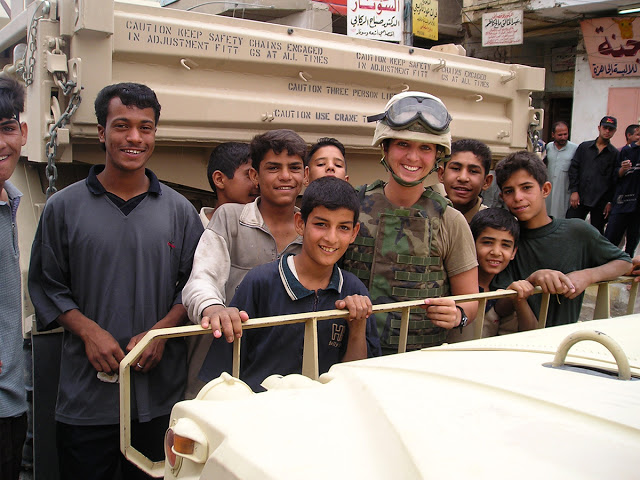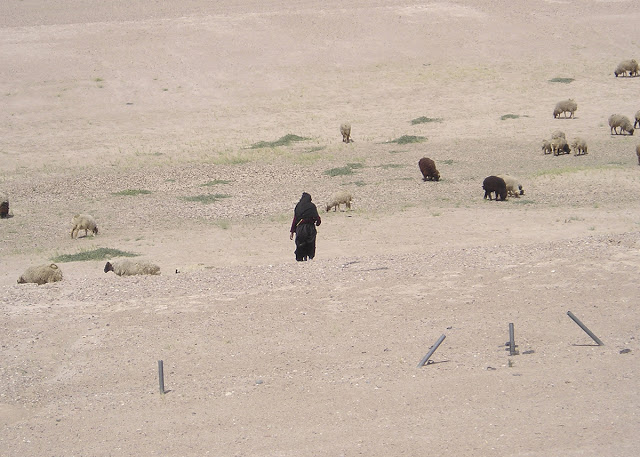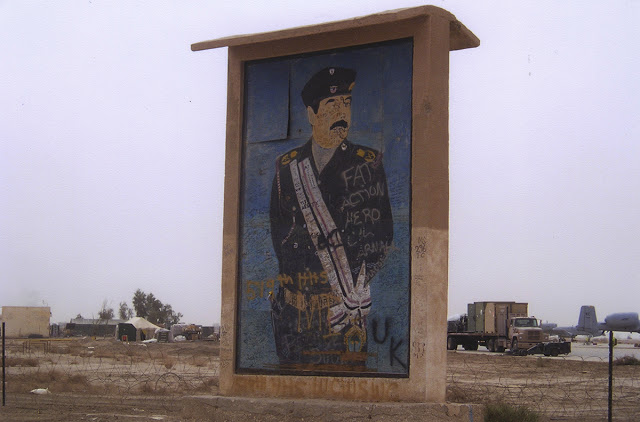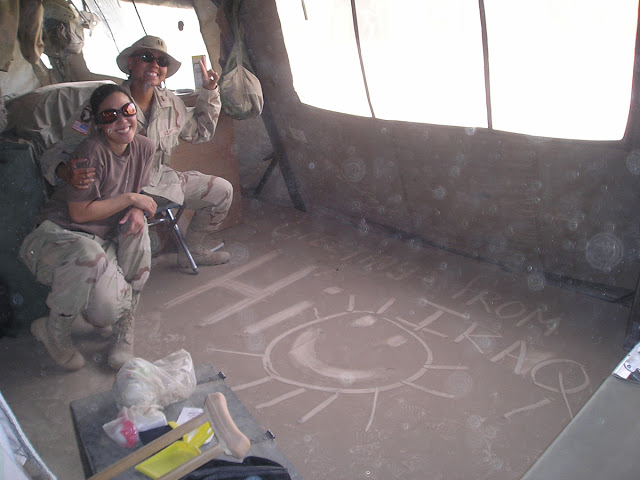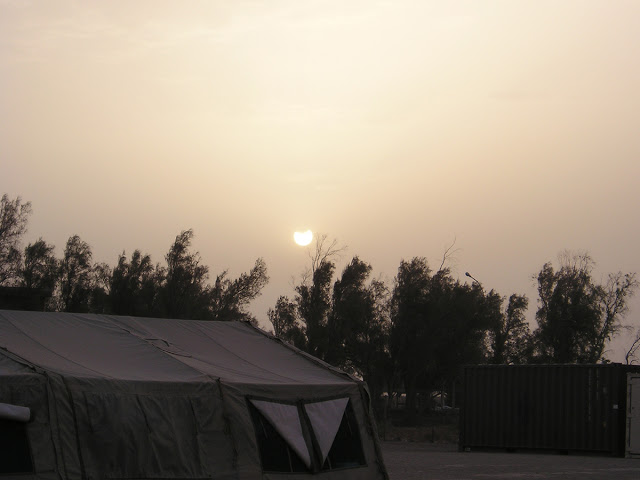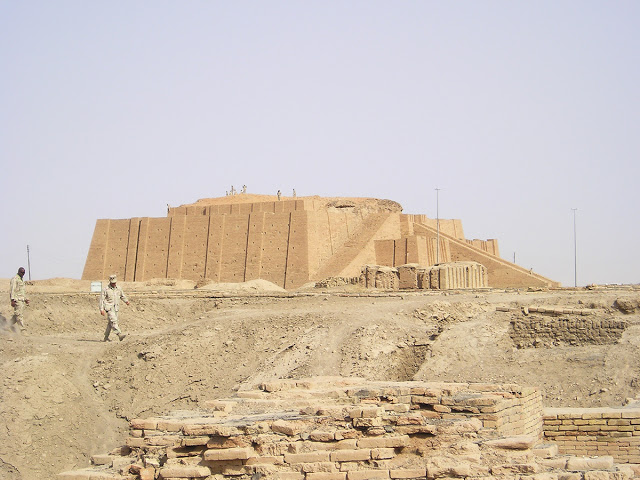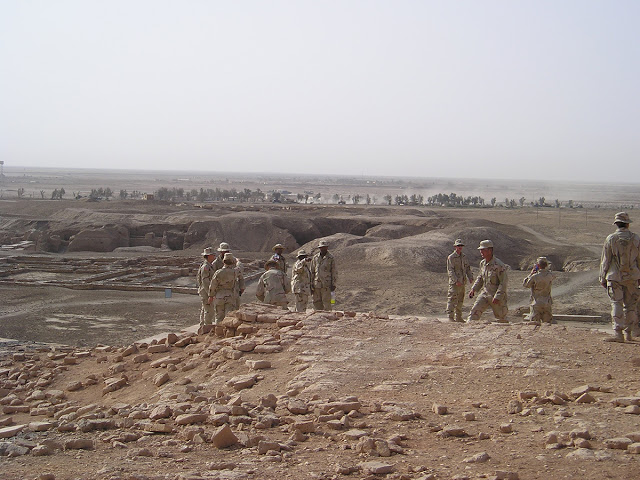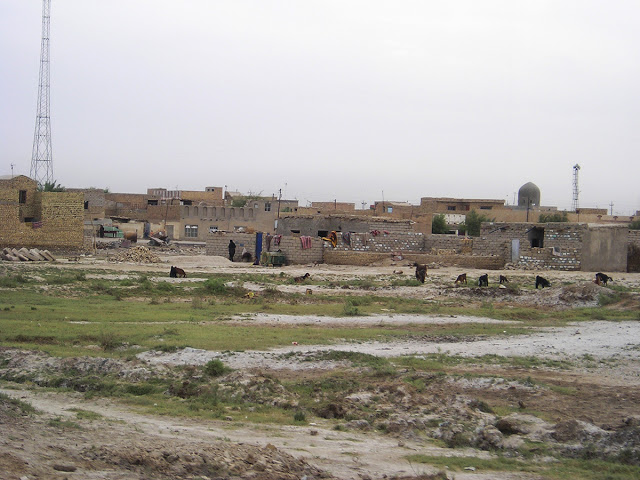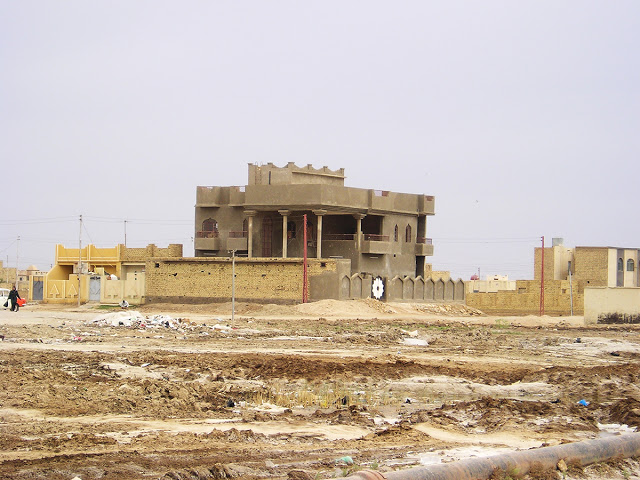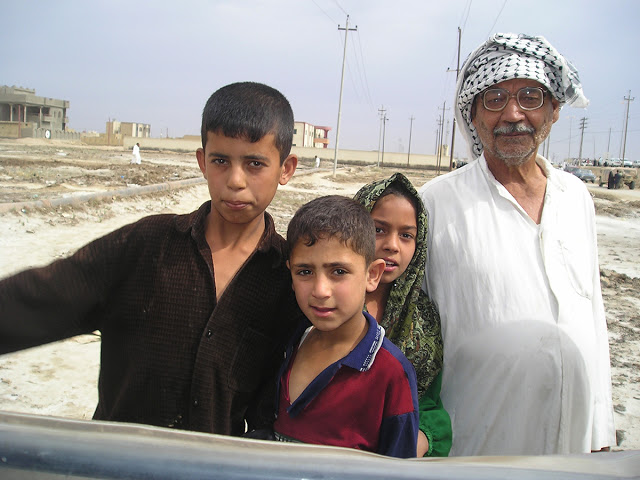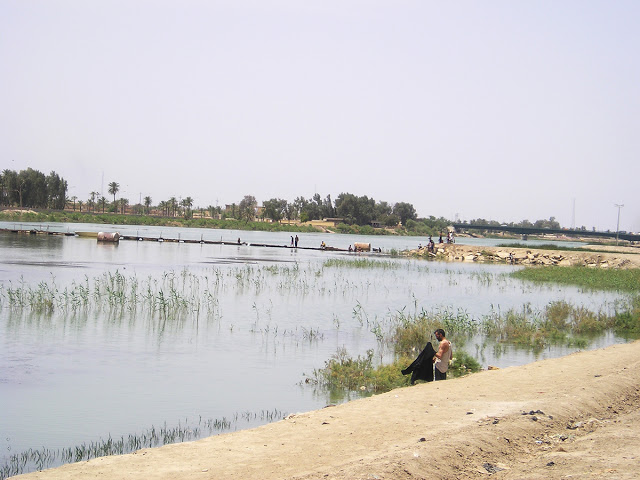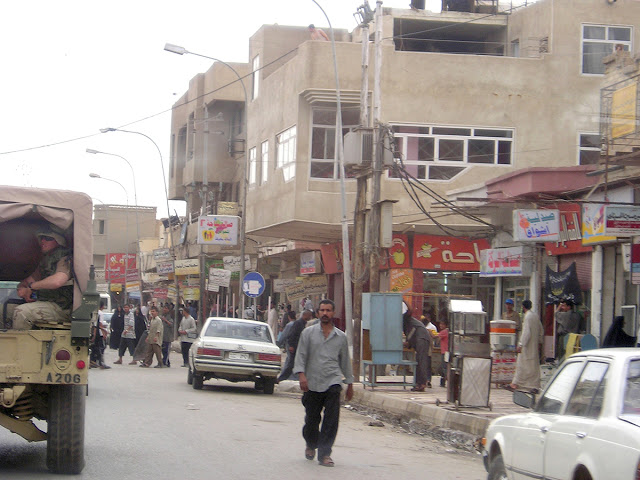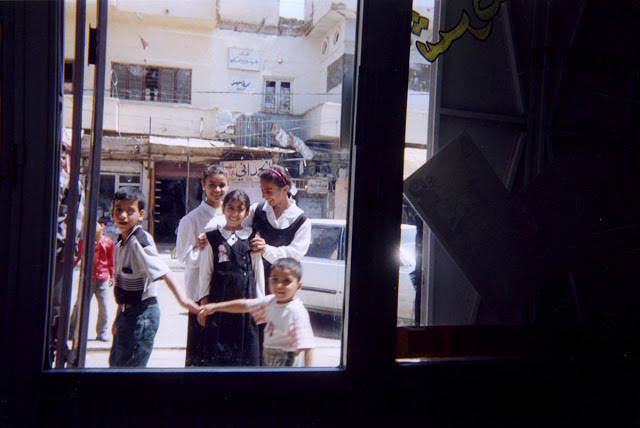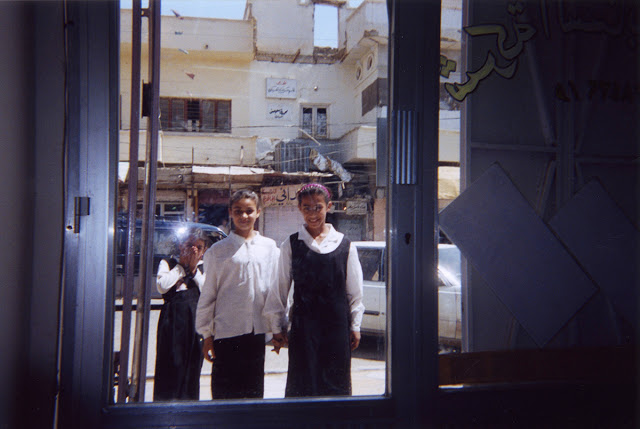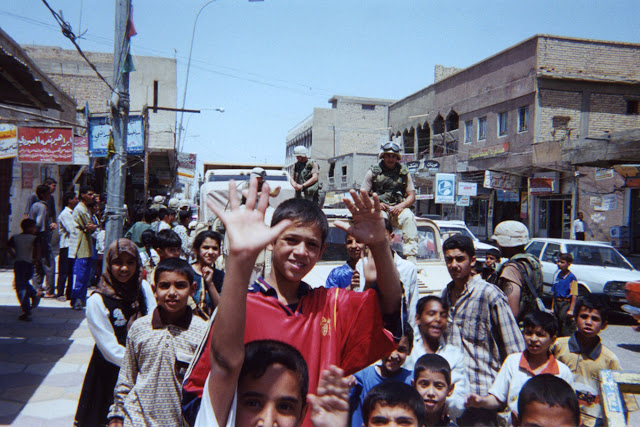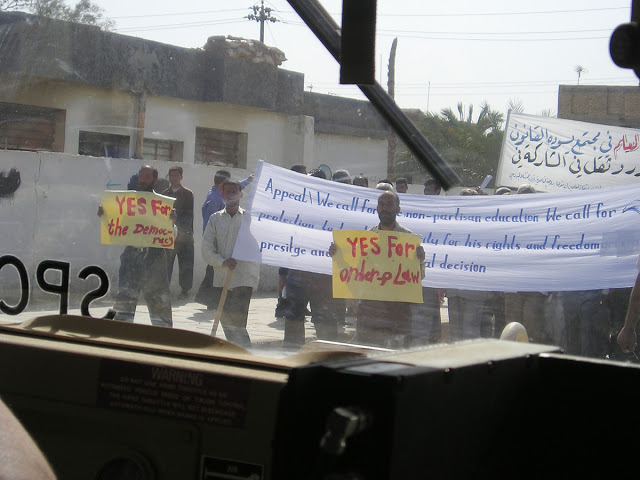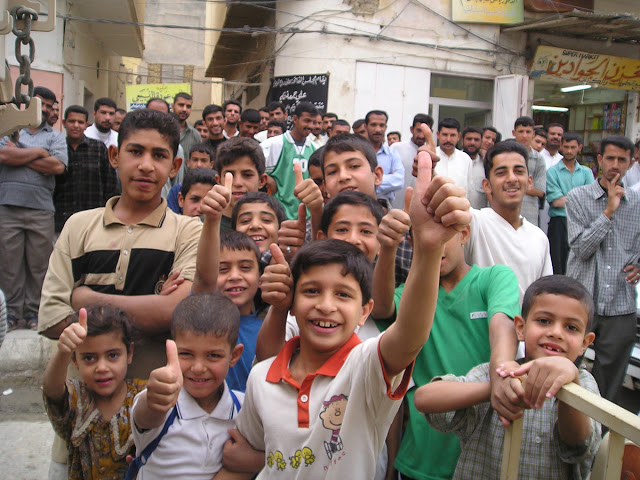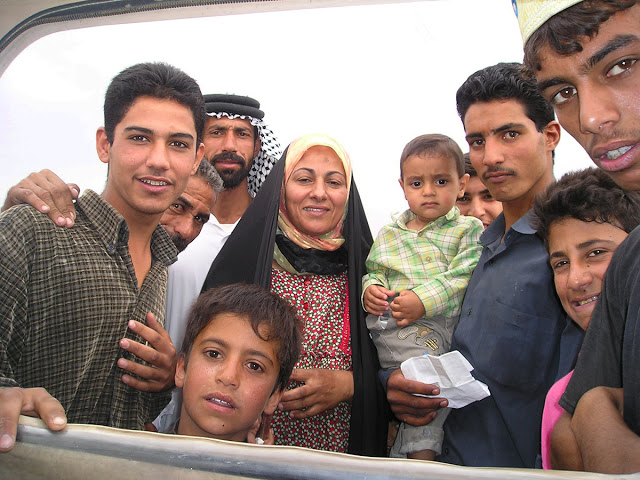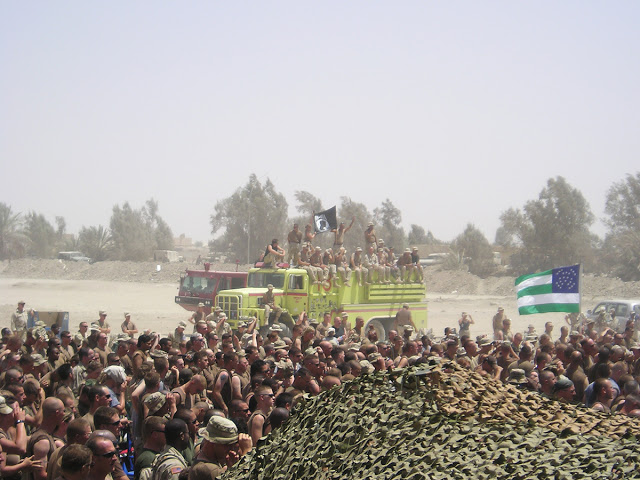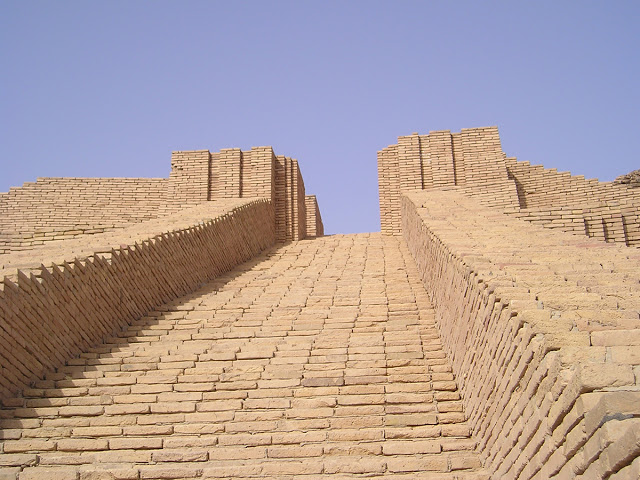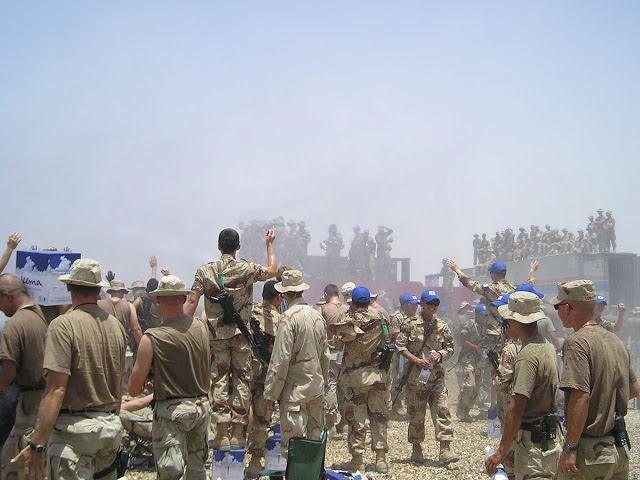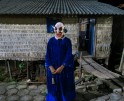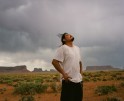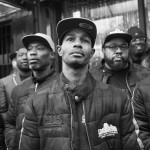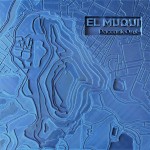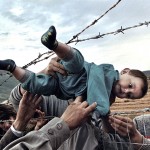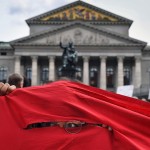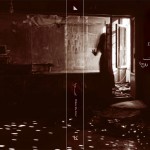JT Blatty: Snapshots Sent Home, Iraq 2003 (Part 2)
Yesterday, Jenn (JT) Blatty shared her journey as a young 23-year-old soldier, dealing with way more respnsibility than the ordinary young woman in the world. After a seven month Tour of Duty in Afghanistan, George Bush declared war in Iraq and Jenn was redeployed in April 2003 for another 6 months.
Jenn (JT) and the locals
It’s hard to believe that 10 years ago I was there–at the very beginning of what metastasized into a horrific nine-year war. The years following my return from Iraq were stained with visuals of death and tragedy as the media reported endless counts of rocket attacks and roadside bombs–followed by the flashing faces of soldiers lost that day.
I can vividly remember the last time I crossed the border back into Kuwait, and thanking God for my life. But we were so fortunate: It wasn’t until the very end of our deployment that this escalation in violence began its journey into an unimaginable death toll.
I’m also fortunate for my memories–that they’re from my own experience, and that through photographs and words I can share a different perspective on Iraq: of how a people from a world so far removed from ours coped with the reality of our presence, and how the American soldiers coped with their own reality, the very fact that they were there. I can share interactions between these two worlds that sometimes crumbled the barriers of difference.

April 2003: In two weeks we were ready for the six-hour drive north from our staging area in Camp Arifjan, Kuwait, to our new home: Tallil Air Base, an old Iraqi airfield about 20 kilometers from An Nasiriyah, and walking distance from the historical remains of the ancient city of Ur.
We crossed the border in a convoy (or line) of about 20-vehicles, driving slowly through the first small village of Safwan, comprised of only ten or so lopsided huts, made from sticks and thatched reeds for roofing. Everything was the color of dirt and sand: the road, the huts, even the sky–everything except for the people that is. Little girls wearing bright violet gowns greeted us as the sand blew into their eyes, little boys wearing red and blue striped shirts giving the thumbs up, and behind them laundry lines weighed down by garments of the color wheel, blowing in the wind and waving a welcome into their country.
We spent less than a week adjusting to Iraq’s sandstorm season while building our new living area–about 500 of us squashed into 40 tents, each of us claiming our personal space with a 2-foot wide cot. Our initial mission was to build a living area for the incoming troops, but since the Army’s logistical system wasn’t established in Iraq yet, a small team of us were tasked to work with the locals of An Nasiriyah to purchase needed supplies.
We’d park curbside, directly outside of his shop, but making our way to the entrance was a task in itself. We moved against an incoming tide of local men and children who were mesmerized by women in uniform. They wanted to speak, to practice their English, and they’d say anything to hold our attention for a few moments, even if it were through crass statements and gestures against Saddam Hussein.
I was outside of the store taking pictures of the local children–they were smiling and laughing while they pushed each other to squeeze into the edges of my view, posing with their favorite American gestures such as “raise the roof.” I remember the sound of bells jingling as a door opened behind me, and then the cheering started to get a little quieter as the crowd’s eyes wandered over my shoulder.
He was an older man, standing in the doorway of his store with a book in one hand, one I believe to have been the Koran, and prayer beads in the other. He started to preach in Arabic, fiercely, scolding in his tone, and the power in his voice paralyzed me. It was also enough to silence the street and command the attention of every living presence. While he spoke, our contractor tugged me into the store, and from the doorway I listened to his voice shift to English. I couldn’t understand everything that he said, but I do remember hearing quite vividly, “things are meant to be the way they are, you should not be here.”
When he stopped, there was a moment of absolute silence, an uncomfortable silence, and then the crowd broke into applause and then into a cheer. But as soon as the man retreated into his store and the bells jingled with the closing of the door, they turned to look at me as if nothing had happened, smiling playfully and ready to pose for more pictures.
During one of our supply runs we were waiting for our translator, parked in the sand lot outside of his building. A whirlwind of sand kicked up into the air when we pulled in, and it continued to lurk while we waited, egged on by the wind, seeping into my nostrils and burning my eyes. I couldn’t see more than about 5 yards around us, but I already knew what was behind the curtain: Curious men and children waiting to approach the female soldier. I never would have imagined who emerged from the cloud instead: An Iraqi woman, wearing an abaya, covering her from head to foot, but not concealing her face and the warmth that radiated from her eyes and smile.
The only contact I’d had with an Iraqi woman in public was from 20 yards away, and she turned her face to hide in the shadows of a building after a curious smile. This woman stood one foot away from me and stared straight into my eyes without fear or hesitation. She carried a book under her arm, and as she smiled and nodded her head in a gesture, she opened it to a page and pushed it towards me. I took it from her hands, perplexed, and closed it to read the cover: It was a translation Dictionary. She wanted to understand my world as much as I wanted to understand hers.
The engine cranked with our translator’s arrival, and as much as I wanted to stay, I returned the book and met her eyes in farewell. In that moment there was an understanding between us, an acceptance of our circumstances.
I still think about what could have been said or shared between two people, two women for that matter, whose realities were so intensely different. But at the same time, right there, in that dirt parking lot in the middle of a combat zone in Iraq, we were exactly the same.
A big thank you to Jenn for sharing her experience.
Posts on Lenscratch may not be reproduced without the permission of the Lenscratch staff and the photographer.
Recommended
-
Andrew Lichtenstein: This Short Life: Photojournalism as Resistance and ConcernDecember 21st, 2025
-
Paccarik Orue: El MuquiDecember 9th, 2025
-
Lauri Gaffin: Moving Still: A Cinematic Life Frame-by-FrameDecember 4th, 2025
-
Dani Tranchesi: Ordinary MiraclesNovember 30th, 2025
-
Art of Documentary Photography: Elliot RossOctober 30th, 2025

